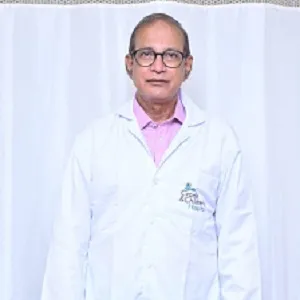Pediatric surgery and urology are two essential fields of medicine that deal with the diagnosis, treatment, and management of congenital or acquired defects in children's bodies, particularly the urinary tract and reproductive organs. Pediatric surgical procedures may be necessary to address abnormalities in children, including birth defects, injuries, and various diseases. These procedures may be complex and require a team of medical professionals, including pediatric surgeons, pediatric urologists, and other specialists.
Pediatric surgery and urology consist of several different procedures, each with its unique benefits, risks, and complications. Here are some of the most common pediatric surgical procedures.
Circumcision
Circumcision is a surgical procedure that involves the removal of the foreskin, which is the skin that covers the tip of the penis. This procedure is typically performed on male infants, and the main reason for it is to prevent infections, particularly urinary tract infections. Some people may also opt for circumcision for religious or cultural reasons. The procedure is usually safe and has few complications, but parents should consult a pediatric surgeon before opting for circumcision.
Hypospadias Repair
Hypospadias is a congenital condition that affects the male urinary tract. The condition causes the opening of the urethra to be on the underside of the penis instead of the tip. Hypospadias repair is a surgical procedure that involves moving the urethral opening to the tip of the penis. The procedure is usually performed when the child is between 6 and 18 months old. It is generally safe and effective, but complications may include bleeding, infection, or urethral stricture.
Hernia Repair
A hernia occurs when an organ or tissue protrudes through a weak spot in the abdominal muscles. In children, hernias typically occur in the groin area, and hernia repair is a surgical procedure that involves returning the tissue or organ to its proper place and closing the weak spot in the abdominal wall. The procedure is typically safe, but complications may include infection, bleeding, or injury to other organs.
Orchidopexy
Orchidopexy is a surgical procedure that involves moving a testicle that has not descended into the scrotum to its proper location. The procedure is typically performed when the child is between 6 and 18 months old. It is generally safe and effective, but complications may include bleeding, infection, or injury to the testis or surrounding structures.
Pyeloplasty
Pyeloplasty is a surgical procedure that involves repairing a blockage in the ureteropelvic junction, which is the area where the ureter connects to the kidney. The procedure is usually performed on children who have a congenital blockage or obstruction in the urinary tract. It is generally safe and effective, but complications may include bleeding, infection, or injury to the kidney or surrounding structures.
Pediatric surgical procedures can be complex and require specialised training and experience. It's essential to consult a pediatric surgeon or urologist to assess your child's condition and determine the best treatment options.
Request an appointment at Apollo Cradle, Hyderabad - Jubilee Hills. Call 1860-500-4424 to book an appointment.
Pediatric surgery and urology cover a wide range of conditions such as congenital malformations, tumours, injuries, and infections of the urinary and reproductive systems, as well as gastrointestinal, thoracic, and other surgical conditions affecting children.
Pediatric surgical procedures can be performed through traditional open surgery or minimally invasive techniques such as laparoscopy, thoracoscopy, or robotic-assisted surgery. The approach depends on the type of surgery and the patient's condition.
Common urological conditions in children include vesicoureteral reflux (VUR), urinary tract infections (UTIs), hypospadias, undescended testicles, and hydronephrosis.
The recovery period for pediatric surgical procedures varies depending on the type of surgery, the patient's age and overall health, and the extent of the surgery. Children may need to stay in the hospital for a few days to several weeks, and it may take several weeks to several months to fully recover.
Children with congenital abnormalities or conditions affecting the urinary and reproductive systems or the gastrointestinal tract should see a pediatric surgeon or urologist. Children experiencing symptoms such as abdominal pain, vomiting, or urinary issues should also be evaluated by a specialist.
Our Doctors
Treatments
- Anaesthesia & Pain Management
- General Pediatrics
- Growth Chart
- Newborn Screening
- Pediatric Allergy
- Pediatric Dermatology
- Pediatric Endocrinology
- Pediatric Nutrition
- Pediatric Orthopedics
- Pediatric Psychology
- Pediatric Surgery & Urology
- ROP Screening
- Stem Cell Banking
- Vaccination/Immunisation Schedule

 90% Patient Satisfaction Score
90% Patient Satisfaction Score









